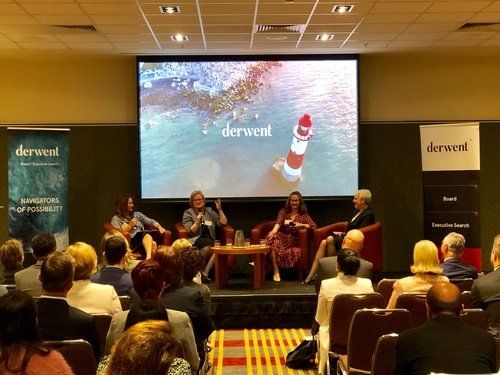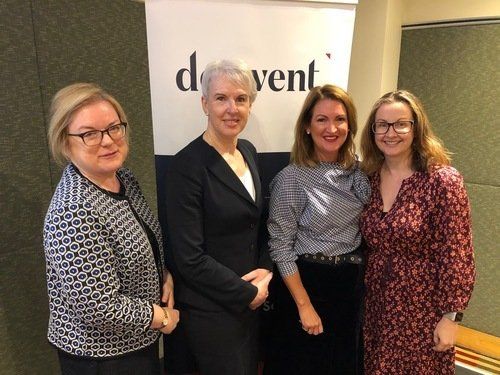News
People Partner Or Commercial Partner?

Derwent recently held a series of successful HR forums in Sydney and Melbourne which addressed the matter of
“Elevating HR Executives in the Boardroom”. Given the timing, post Hayne Report and the Banking Royal Commission, the discussion was centred around the broader implications for Boards, Management and HR. The key insighths were:
Expect to see an increased focus on demonstration of “evidence” from Boards. Trust won’t just be granted between Boards and Management, it will need to be justified.
For HR and Management, there will be questions such as:
- Do you really understand your risks and have appropriate controls in place?
- What is that ticking timebomb inside the organisation?
- If 80% of people are engaged, what’s happening with the other 20% and what risks does this pose?
- Do you understand what impact the new risk process / risk policy will have on your workforce? If you don’t, you should.
- Evidence of behaviour comes from getting amongst employees right the way down the chain, such as factory and site visits. Be out there don’t get lost in the day to day, lift your head and take opportunities to interact with the business at all levels.
This is a balancing act for HR between what the board need and what the executives require.
- Expect to see more complexity and requirements in remuneration. What will the Board and Shareholders accept? More modeling, more scenario planning, understanding the commercial imperatives of the organisation, being connected within the industry. Become entirely schooled up and ensure that you have the right expertise around you. You can’t wing this!
- The AICD directors course is a great way to understand the Boards’ perspective and what they are looking for. How do you write a Board paper that is going to cut through? Before undertaking the course, make sure that you complete your own commercial bootcamp, e.g. ensure you can read a P&L. Think carefully about why you want a board role – it’s endlessly hard work and NFP boards are really, really tough. You need a broad executive skill set, let your network know that you are looking for board roles, find your advocates. What do you want to be famous for? This is the material you need to be able to talk about in a heartbeat. It’s your brand – be crisp, be clear.
The key takeaways continue to be:
- HR needs to equip itself to fully understand the internal and external commercials of the organisation.
- HR need to take risk and have courage. Get involved in a project, a topic that’s not just about HR, broaden your skill set.
- Boards aren’t for everyone. Really do your research before you invest time.


Share this article
Recent Articles



Sydney
Level 21
123 Pitt Street
Sydney NSW 2000
Australia
sydney@derwentsearch.com.au
Melbourne
Level 28
360 Collins Street
Melbourne VIC 3000
Australia
melbourne@derwentsearch.com.au
Perth
Level 29
1 Spring Street
Perth WA 6000
Australia
perth@derwentsearch.com.au
Brisbane
Level 19
10 Eagle Street Brisbane
Brisbane QLD 4000
Australia
brisbane@derwentsearch.com.au
Sydney
Level 21
123 Pitt Street
Sydney NSW 2000
Australia
+61 2 9223 1855
sydney@derwentsearch.com.au
sydney@derwentsearch.com.au
Melbourne
Level 11
350 Collins Street
Melbourne VIC 3000
Australia
+61 3 9691 1333
melbourne@derwentsearch.com.au
melbourne@derwentsearch.com.au
Perth
Level 15
240 St Georges Terrace
Perth WA 6000
Australia
+61 8 9282 5250
perth@derwentsearch.com.au
perth@derwentsearch.com.au
Canberra
The Realm
18 National Circuit
Barton ACT 2600
Australia
canberra@derwentsearch.com.au
Brisbane
Level 19
10 Eagle Street Brisbane
Brisbane QLD 4000
Australia
+61 2 9223 1855
brisbane@derwentsearch.com.au
canberra@derwentsearch.com.au
Canberra
The Realm
18 National Circuit
Barton ACT 2600
Australia
+61 2 9223 1855
canberra@derwentsearch.com.au
Derwent


